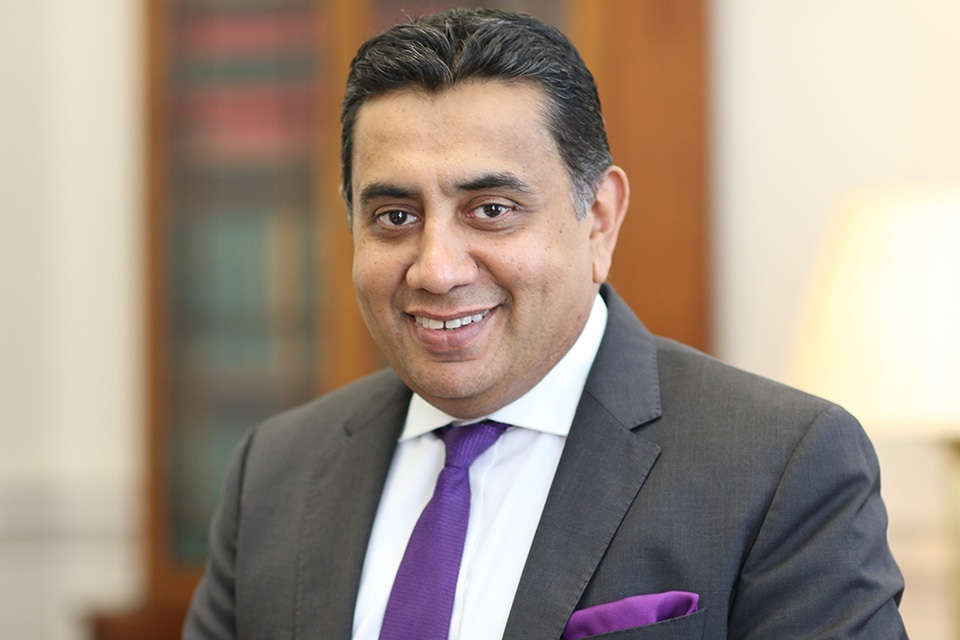UN Human Rights Council 48: UK closing statement
Lord Ahmad of Wimbledon welcomes the conclusions of the 48th Session of the UN Human Rights Council.

The UN Human Rights Council concluded its 48th session on Friday, adopting important resolutions on Syria, Somalia, Afghanistan, Burundi, Libya, and child and early forced marriage, among many other pressing issues.
The UK supported the Council’s adoption of the resolution on Afghanistan, which calls for an immediate end to human rights abuses and violations and the establishment of an inclusive Government, as well as appointing a Special Rapporteur to monitor human rights. I call on the Taliban to co-operate with the UN, international partners and the new Special Rapporteur, and to uphold human rights, especially those of women, girls and minorities.
I am pleased that the Council has adopted the Syria resolution, which highlights the Commission of Inquiry’s latest findings, confirming that appalling atrocities continue. The recent escalating violence and renewed use of siege tactics in Dar’aa prove the Syrian regime’s willingness to keep devastating the lives of ordinary civilians. It is vital that we send a message to the people of Syria that their plight is not forgotten.
I welcome the Council’s adoption of the resolution on Somalia, reflecting concern for the absence of substantial progress, particularly on sexual and gender-based violence, violations against children and media freedom. Nonetheless, I commend Somalia’s engagement with the international community during a challenging period, overshadowed by delays to the electoral process. I urge Somalia to take tangible steps to implement its human rights commitments; the UK stands ready to support these efforts.
I welcome the Council’s adoption of a resolution on human rights in Burundi, which the UK co-sponsored. We note that progress has been made over the past year, but remain concerned about ongoing reports of human rights violations and abuses, and impunity for perpetrators. The UK continues to call on the Government to cooperate with all UN human rights mechanisms, including the new Special Rapporteur, and to reopen the OHCHR office in Burundi.
The UK is a strong supporter of the Fact Finding Mission on Libya and we are pleased the Council adopted the resolution on Libya. We welcome many of the elements of the resolution that focus on addressing human rights violations and abuses, and that aim to provide accountability for the Libyan people. The Libyan authorities must take forward a programme of national reconciliation, to which the findings of the Fact Finding Mission will contribute.
I regret that the mandate of the Group of Eminent Experts on Yemen was not renewed. The UK voted in favour as we had in previous years. We remain concerned about reports of serious and wide-ranging human rights violations and abuses by parties to the conflict. The Group had a crucial role to play in providing ongoing reporting on the actions of parties. We continue to urge the parties involved to investigate these allegations and take action to promote and protect human rights.
I welcome the Council’s adoption of a resolution on the increase of child, early and forced marriage in times of crisis. We must urgently address this and focus our efforts on empowering girls to give them voice and control over their own lives. The resolution highlights the importance of ensuring girls realise their equal right to education, which can contribute towards ending CEFM.
We still have several concerns about the legal basis of the right to a safe, clean, healthy and sustainable environment. Nevertheless, we must tackle climate change and prevent further environmental degradation so, I’m pleased that we were able to vote in favour of this resolution. We further supported a resolution which creates a new special rapporteur on the promotion and protection of human rights in the context of climate change.
The UK is firmly committed to tackling all forms of racism in all its evil guises through the UN system, including antisemitism, xenophobia and related intolerance. We called a vote during this session on a resolution which repeatedly referenced the Durban process, given our deep concerns about antisemitism. The scourge of antisemitism must be tackled head on and tackled now. It is time to forge a new approach in eradicating racism.
We must come together to find the solution, it is time to act.